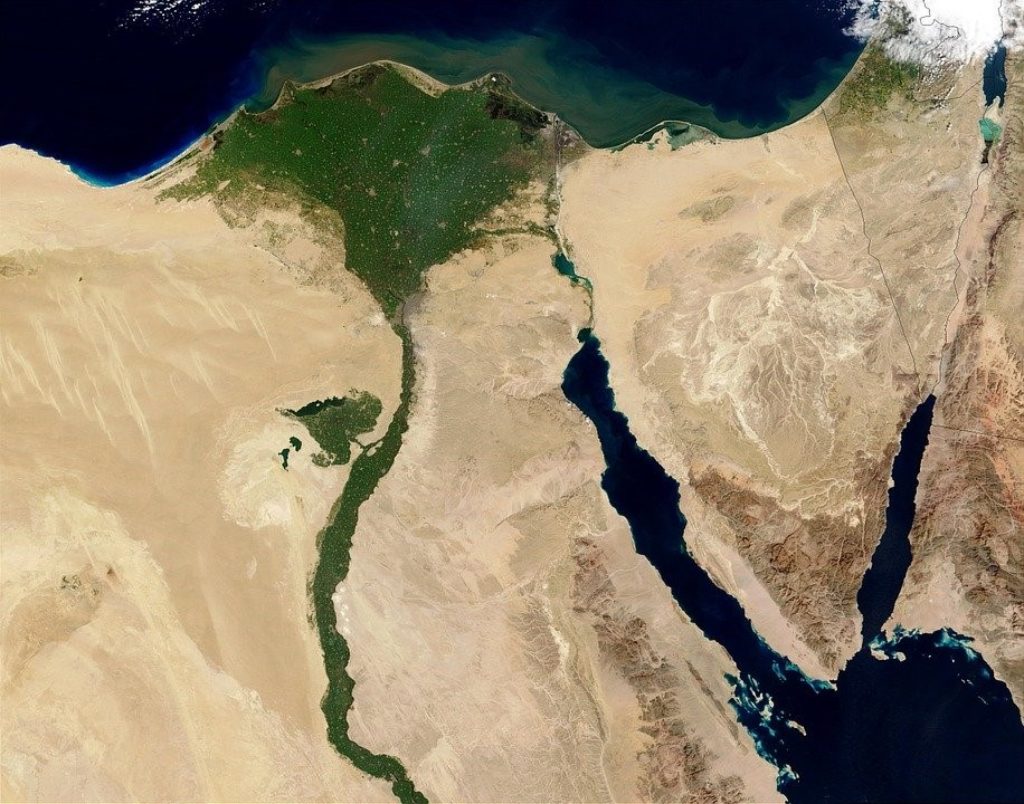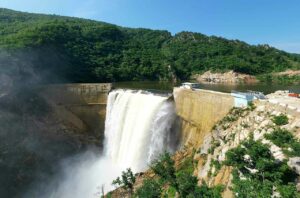Featured News
Egypt, Ethiopia, and Sudan Reach Draft Agreement on what will be Africa’s Biggest Hydroelectric Dam
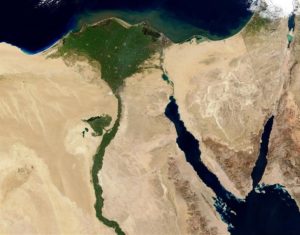
Ethiopia’s construction of the massive Grand Ethiopian Renaissance Dam on the upper Blue Nile has prompted a major dispute with Egypt and Sudan over fears that the dam will allow Ethiopia to control the Nile’s flow. After negotiations in Washington DC, it appears that Egypt, Ethiopia, and Sudan have reached a preliminary agreement that will allow Ethiopia to continue construction.
Ethiopia is one of the fastest-growing economies in Africa with the second-largest population, and it views the dam project as essential for its development. It hopes to have the dam filled and generating electricity within six years, but Egypt has argued for a longer timeline to ensure that the Nile’s flow is not drastically reduced. The draft agreement allows Ethiopia to start generating electricity as planned, but requires them to have contingency measures for Egypt and Sudan should there be severe droughts.
This deal should put to rest fears that the water dispute might erupt into open conflict. Egypt views any threat to the flow of the Nile as an existential threat, as the Nile provides 90% of Egypt’s fresh water. Ethiopia began construction in 2011 at the height of the Arab Spring in Egypt. Ethiopia plans for the dam to provide electricity to its entire population, with a surplus that can be sold to neighbors.
New Study Accuses EU Fishing Access Agreements of Contributing to Over fishing in West Africa
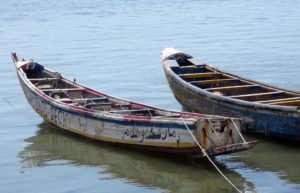
Coastal countries often grant access to foreign fishing vessels to fish in their domestic waters, and those arrangements are increasingly coming under fire for threatening fish stocks and local food security. A recently published paper explores how the E.U.’s agreements with states across West Africa are contributing to the over fishing of fragile fish stocks and threatening local food security. EU vessels are targeting particular fish species in West African waters whose impact could go beyond the artisanal fishermen, as locally-caught fish contributes to the food security of millions of people in the region.
The study alleges that the EU is preserving and sustainably managing fish populations in European waters, while shifting EU fleet overcapacity to West Africa in ways that overexploit fish stocks. This shifting violates the EU’s Common Fisheries Policy, which in 2013 specifically extended sustainability requirements to third countries in which EU vessels have access agreements. The study calls for the EU to end fisheries subsidies and to stop the selective enforcement of their fisheries laws, and for coastal states to renegotiate the access agreements to more favorable terms that include more income that is invested into sustainable fisheries management.
Mangroves Expanding Towards Cooler Latitudes as Temperatures Rise
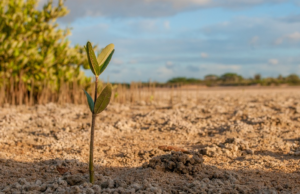
While many ecosystems and species are set to suffer setbacks or outright devastation from climate change, some species may benefit from the expanding warmer temperatures. Mangrove trees are one such species, as they flourish around tropical and subtropical latitudes centered around the equator but recent studies suggest that mangroves are already slowly creeping towards the poles as temperatures warm. Cold-tolerant varieties have been observed pushing poleward on at least five continents in the past half-century, including in Peru, China, Australia, South Africa, and the U.S. In the southern U.S., mangroves are establishing themselves father north along Florida’s Atlantic and Gulf Coasts, and up the northern Gulf of Mexico.
Mangrove forests play an integral natural infrastructure role, as mangroves provide essential ecosystem services that fortify and protect coastline and buffer against extreme weather impacts like tsunamis, cyclones, hurricanes, erosion, and flooding. Mangroves have evolved to thrive in particularly inhospitable conditions that would kill most other trees and plants: waterlogged soil, low-oxygen soil, water with different levels of salinity, and slow-moving water. As mangroves expand away from the equator, they’ll continue to mediate urban pollution, provide habitat for a variety of other plants and animals, and support local fisheries in new areas. Another recent study notes that they’ll be better at trapping and storing carbon than the marsh plants they’re displacing.
EU Reissues Yellow Card to Panama for IUU Fishing
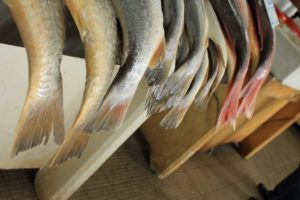
The EU has reissued a yellow card to Panama for “significant backtracking” in Panama’s efforts to ensure its flagged vessels were not engaging or supporting in illegal, unregulated, or unreported (IUU) fishing. The EU’s regulations to combat illegal, unreported, and unregulated (IUU) fishing sit at the heart of the EU Common Fisheries Policy, as IUU fishing is a serious threat to sustainable management and exploitation of marine resources and the EU’s efforts to promote ocean governance. The EU has never before reissued a yellow card warning, and the move was meant to send a warning not only to Panama but to other seafood exporting countries that efforts to curb IUU fishing must continue after any cards are lifted.
Panama was issued a yellow card in 2012 for inadequately monitoring its fleet, failing to impose sanctions on IUU operators, and failing to develop and enforce fisheries laws. Panama did take action, introducing new fisheries legislation with improvements to monitoring, control, and the inspection of fishing activities, but the reissuance shows that these efforts were not sustained.
In Case You Missed It
China continues clampdown on seafood smuggling with new seizure at Vietnam border
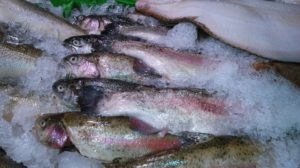
Chinese officials have announced the seizure and destruction of a large shipment of smuggled seafood that at a Vietnam border crossing. Authorities announced that smugglers were caught trying to bring a large shipment of frozen seafood across into China near Nanning city. Nine different fish were in the parcel, including eel and lobster from South America. Customs officials note that over 200 tons of illegal frozen seafood were seized at this crossing in 2019, stressing the public health dangers and tax evasion.
Coronavirus leads to crackdown on wildlife trade in China
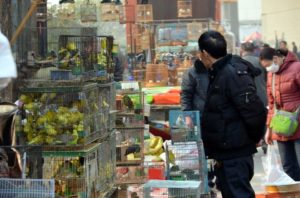
As the number of Coronavirus cases continue to grow, China has announced a temporary ban on the trade of wild animals. Like SARS in 2004, Coronavirus spread from wild animals to humans, with the source traced to a market in the city of Wuhan. Despite a similar crackdown in the trade of wild animals in 2003, China remains a major consumer of wild meat, which is also used in traditional medicine. While it is hoped that this ban could reduce the risk of disease spread and have positive knock on impacts for conservation efforts across the globe, it remains to be seen if this ban will become permanent.
Breadfruit: climate adaptable, tough, nutritious—and perhaps the answer to Caribbean food security?
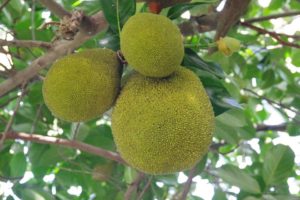
As climate change strains the Caribbean’s food security, malnutrition, and economies over-reliant on tourism and food imports, a Trinidadian agricultural economist from the University of the West Indies (UWI) is advocating a novel solution for the Caribbean’s food security: breadfruit. Breadfruit is highly adaptable and grows well around the various microclimates around the Caribbean, requires little to no agricultural maintenance, and can withstand climate change impacts like drought, high winds, flooding, and hurricanes. Indeed, when Hurricane Maria hit Puerto Rico, the island’s breadfruit trees were left unscathed. Expanding commercial breadfruit cultivation around the Caribbean would provide an engine for income generation and promote a highly nutritious staple crop, but it would also bring a resilient and hardy method for local carbon storage.
Blockchain Taking Hold in Seafood Traceability

Two recent start-ups have been successful in harnessing blockchain technology to provide full traceability throughout the seafood supply chain all over the world. The Fiji-based TraSeable is piloting its blockchain app across the Pacific, and it is currently being used by six companies and to track over 50,000 fish. The Russian company YORSO has expanded its own blockchain technology into the US and EU, and it is moving its headquarters to the EU to focus on developing its base in the EU with the hope of entering the Chinese market. For both, the focus has been on being affordable for fishermen to adopt instead of using paper documentation, and then convincing companies to adopt it.

